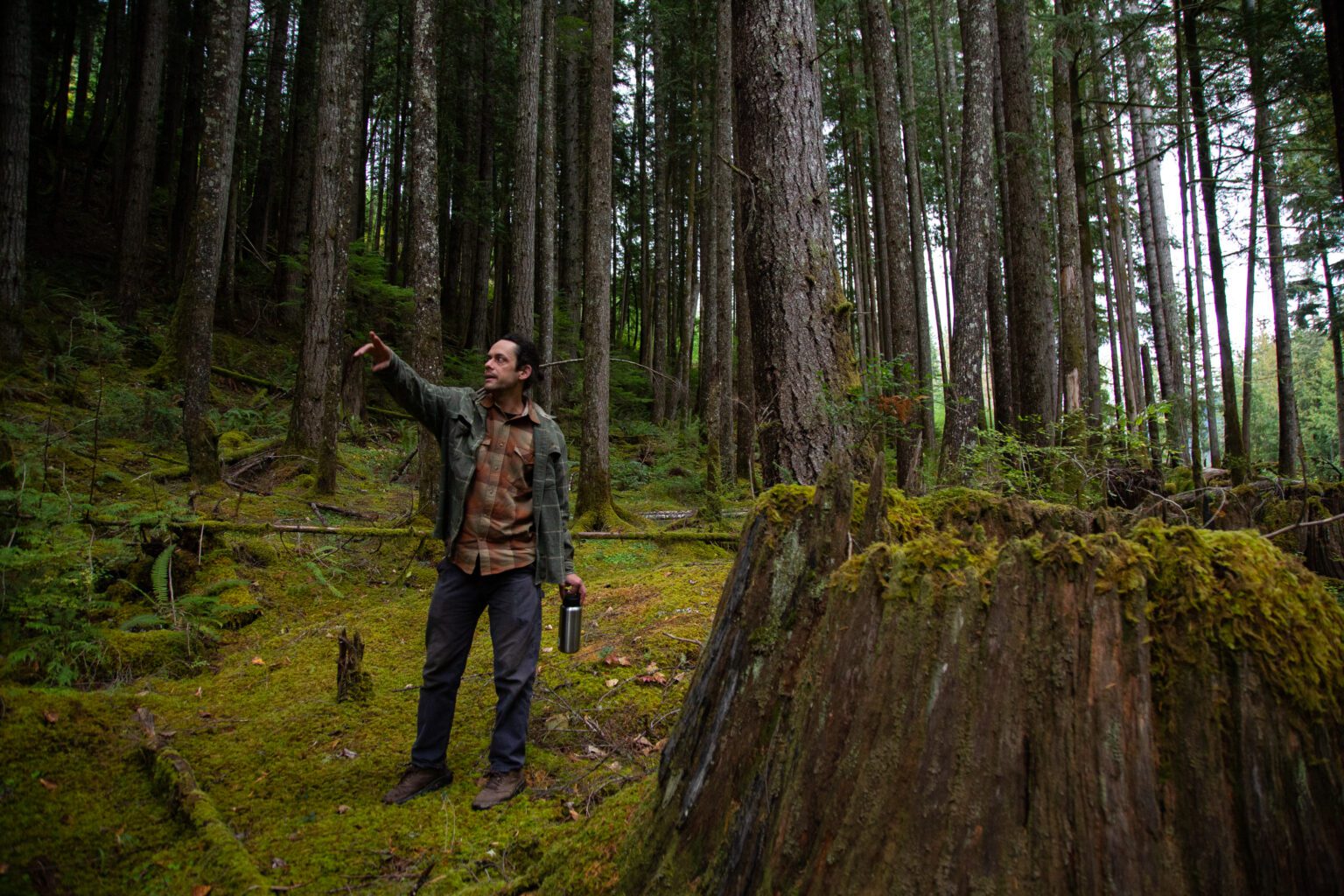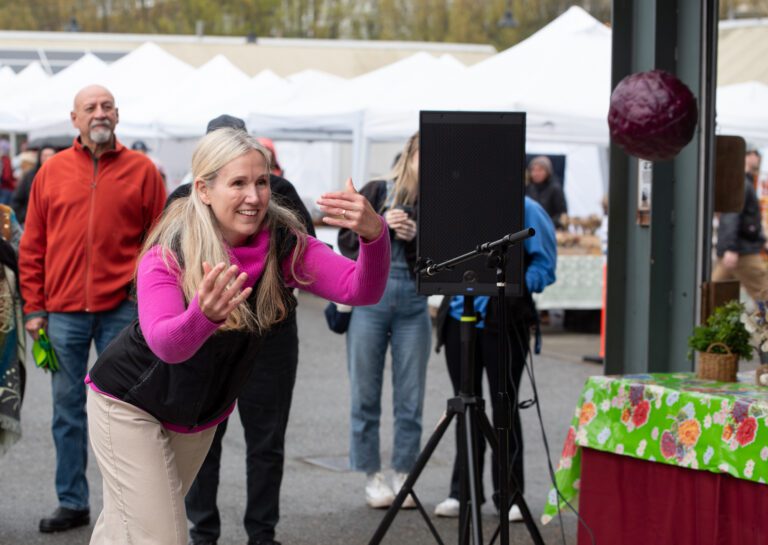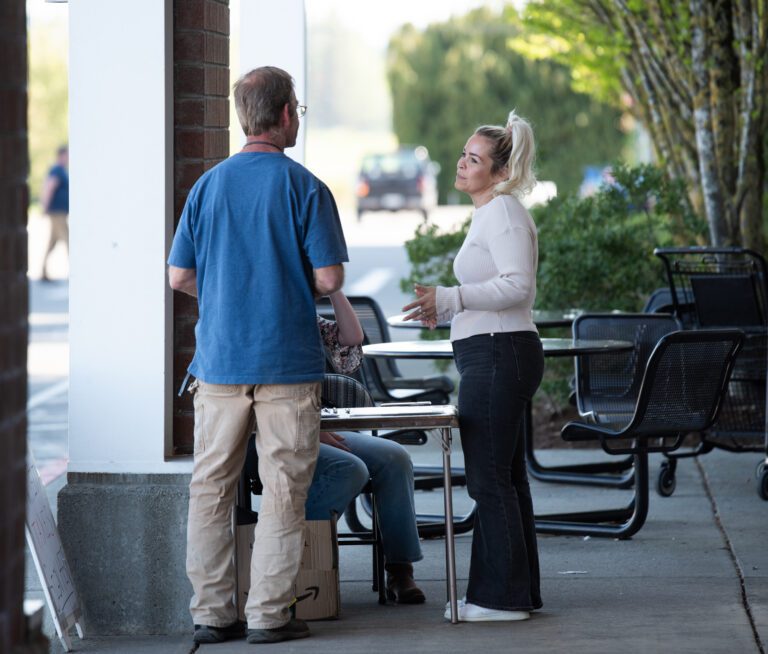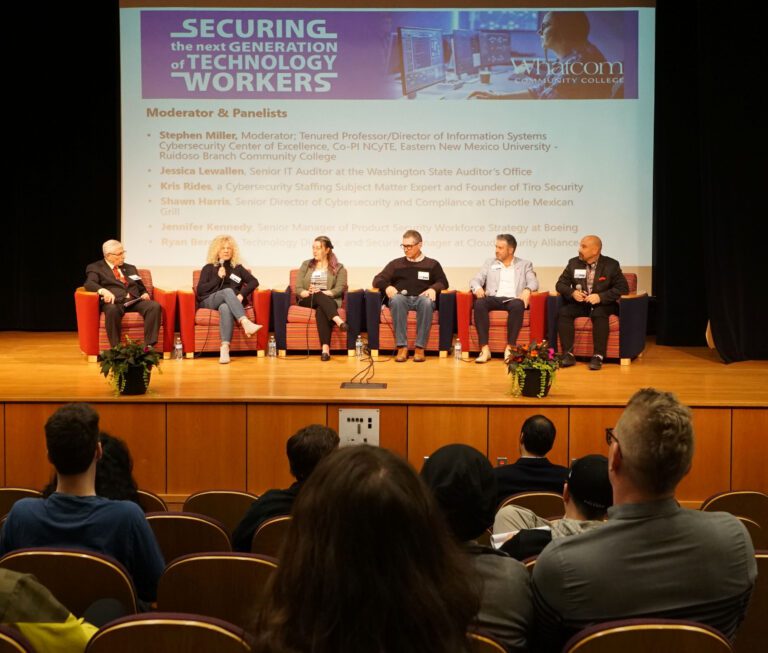DEMING — A 40-acre plot of “legacy forest” in Whatcom County will hit the auction block in December.
The Board of Natural Resources, the group responsible for developing policies for the Washington State Department of Natural Resources (DNR), voted Tuesday to list the “Box of Rain” forest for auction for logging rights.
The Box of Rain, about 12 miles southeast of Deming, is situated between Clearwater Creek and the Middle Fork of the Nooksack River. The trees, not quite old-growth, date between 80 and 115 years old, and haven’t been logged in almost a century.
“Legacy forest — that’s not a term that DNR recognizes,” said Brel Froebe, the North Sound Coordinator at the Center for Responsible Forestry. “It’s been popularized by people to describe forests that were logged before 1945 and naturally regenerated, are structurally complex, and have the best chance to become old-growth habitat.”
The Box of Rain, which naturally regenerated over the century with significant biological diversity, is rare.
“We can look around and see there are Douglas Fir trees and Western Red Cedars and hemlocks,” Froebe said. “There’s a variety of different sizes and ages of trees, meaning the forest is developing some structural complexity, and there are very few of these naturally regenerated, structurally complex forests left in the state of Washington and in Whatcom County.”
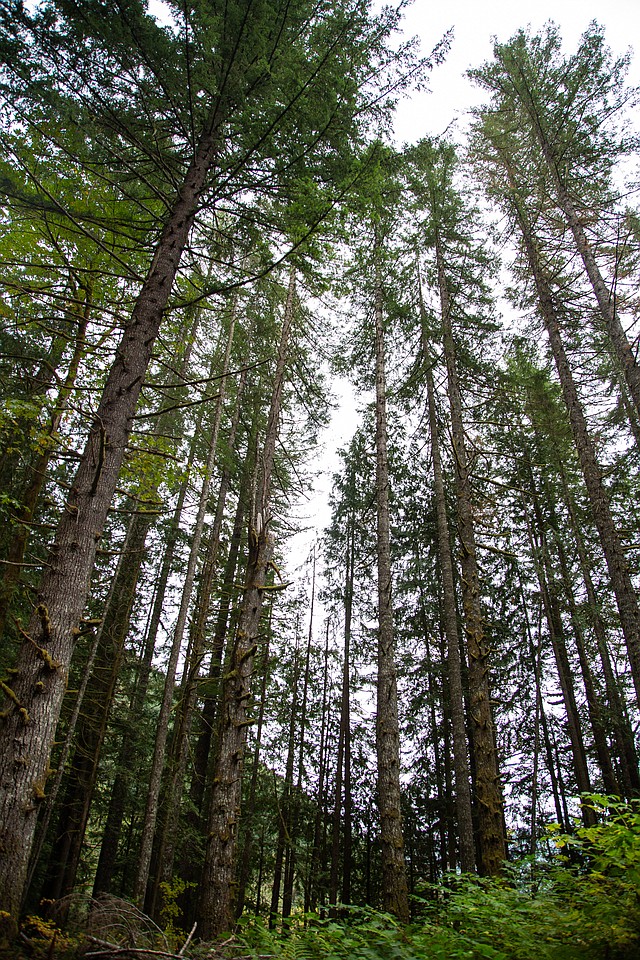 The Box of Rain forest features trees 80 to 115 years old. (Hailey Hoffman/Cascadia Daily News)
The Box of Rain forest features trees 80 to 115 years old. (Hailey Hoffman/Cascadia Daily News)
Environmental activists agree, contending the 40 acres are too ecologically significant to be logged. The forest, they say, protects the land from erosion, the Nooksack River from overheating, salmon from extinction and the region from the negative impacts of climate change, all while sequestering carbon.
Representatives at DNR disagree.
“Box of Rain has had a rigorous slope stability review, an archeological review, consultation with local tribal partners, an opportunity for [comment from] the Department of Ecology and Department of Fish and Wildlife, and all our different resource managers have had a chance to have input into the timber sale,” said Cory McDonald, DNR’s Northwest Region forester. “We review the entire area to determine which areas are appropriate for harvest and which are most important for conservation.”
Reviews for individual projects, including the Box of Rain, can take anywhere from six months to two years, McDonald said, and involve significant outreach, land assessment and environmental considerations.
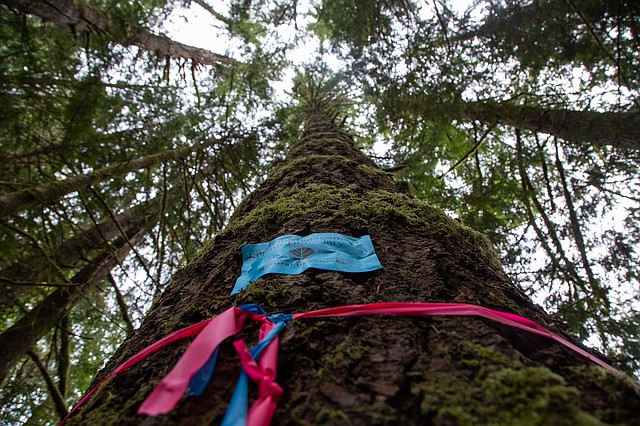 A “Special Unit Management Boundary” sign from the Washington State Department of Natural Resources marks a tree in the Box of Rain legacy forest. (Hailey Hoffman/Cascadia Daily News)
A “Special Unit Management Boundary” sign from the Washington State Department of Natural Resources marks a tree in the Box of Rain legacy forest. (Hailey Hoffman/Cascadia Daily News)
Froebe said the Center for Responsible Forestry isn’t against logging, but logging older trees with significant carbon capture and sequestration capabilities shouldn’t be considered.
“We do need wood products. We’re not trying to shut down the logging industry,” Froebe said. “There is no analysis of … how logging the forest is going to both impact carbon storage and sequestration capacity.”
DNR’s State Environmental Policy Act checklist for the project includes an analysis of emissions, and acknowledges logging the plot “is likely to emit some greenhouse gasses,” including carbon dioxide.
McDonald said DNR takes significant precautions when studying a land for potential logging, including protections for water temperature, erosion and fish habitat where applicable.
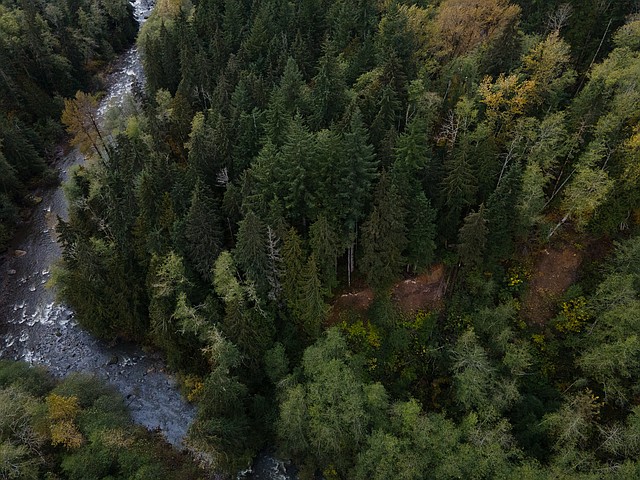 Part of the hillside near the potential timber sale above Clearwater Creek shows signs of erosion. (Hailey Hoffman/Cascadia Daily News)
Part of the hillside near the potential timber sale above Clearwater Creek shows signs of erosion. (Hailey Hoffman/Cascadia Daily News)
A State Environmental Policy Act (SEPA) review indicates DNR’s sustainably managed lands, despite logging, sequester more carbon than they emit.
The Center for Responsible Forestry, along with the Whatcom County Residents group, has asked the county to include the Box of Rain in DNR’s new carbon offset project. The project allows the state to lease protected lands to interested businesses for carbon sequestration and storage at a price that is “reflective of the economic value of logging,” according to DNR.
The value of the Box of Rain, and the minimum bid required at auction in December, clocks in at around $434,000, according to DNR documents.
The sequestration project, announced earlier this year by DNR’s Commissioner of Public Lands Hilary Franz, has already protected dozens of acres of trees in the county, including “near-old-growth” trees involved in the controversial Bessie Sorts timber sale.
The trees at Box of Rain can sequester significant amounts of carbon, but many of the trees are already emitting carbon. Around 25–30% of trees in the plot toppled during rough winds and storms in the last two years, and if not removed and managed soon, could emit significantly more carbon than living trees are sequestering.
“There’s no question that older forests can sequester and store a lot of carbon,” McDonald said. “The question is whether or not Box of Rain is the best forest to do that when a third of the trees are laying on the ground from blowdown.”
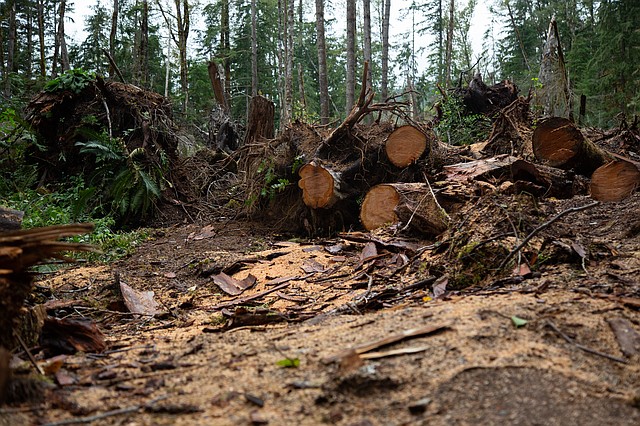 A section of the Box of Rain forest was blown down. (Hailey Hoffman/Cascadia Daily News)
A section of the Box of Rain forest was blown down. (Hailey Hoffman/Cascadia Daily News)
Products produced from older trees, like those in Box of Rain, differ from lumber produced by younger, smaller trees.
“We’re talking about power poles, plywood, oversized logs for large projects, timbers for construction projects like light rail in Seattle,” McDonald said Monday. “The fact is, those wood products need to be made from somewhere.”
Whatcom residents protested the sale during BNR’s decision meeting Tuesday, as well as last week at the Whatcom County Council meeting. More than a dozen people spoke on behalf of the trees last week, advocating for the council to protect the trees through the state carbon capture project or through other means.
McDonald commended the speakers who advocated for the environment.
“The thing that was striking about that meeting is how dedicated those students are that come to the meeting, and how much they want to see positive impacts on our planet, and I’m right there with them,” McDonald said. “That’s why I work at DNR, because what we’re desperately trying to do at DNR is find a way to balance the ability to produce these resources but protect the environment while we’re at it.”

